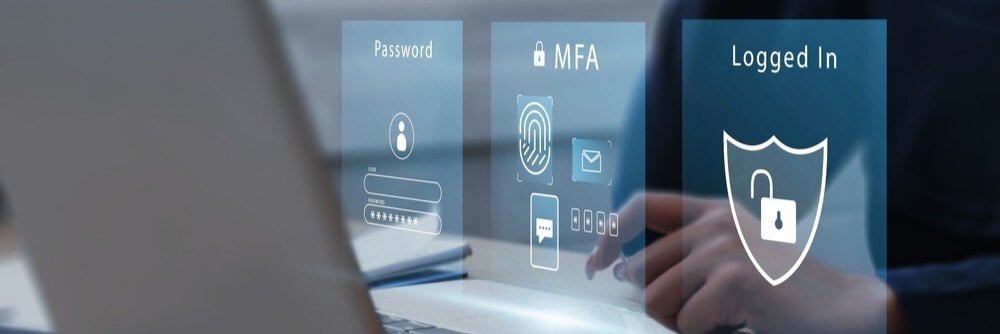The top skills and certifications needed to land a career in cyber security
Cyber security is one of Australia’s fastest-growing industries, with a projected 32% job growth from 2022 to 2032. As cyber threats become more sophisticated, organisations across all sectors—government, finance, healthcare, and critical infrastructure—are investing heavily in security professionals to protect data, prevent attacks, and ensure compliance.
But how do you start a career in cyber security? Whether you’re entering the field or looking to advance, having the right skills and certifications will help you stand out. This guide covers the most in-demand skills, the best certifications recognised in Australia, and the top career paths to help you build a successful future in cyber security.
How to start a career in cyber security
To pursue a successful career in cyber security, it’s essential to develop a strong understanding of networking and operating systems. The role of a network security administrator is particularly important in this context, as it encompasses a range of responsibilities that are crucial for mastering these areas. This foundational knowledge includes understanding network protocols, devices, and architectures, as well as the security features and vulnerabilities of various operating systems. A solid grasp of these concepts will enable you to better understand cyber security principles and design effective security measures. Whether you are configuring firewalls, managing network security, or conducting penetration testing, a deep understanding of networking and operating systems is crucial for identifying and mitigating potential threats.
1. Education & degree pathways
Cyber security professionals can enter the field through formal education, certifications, or a combination of both. A Bachelor’s degree in Cyber Security, IT, or Computer Science is often required for technical roles like Security Engineer, Analyst, or Architect, while a Master’s degree is beneficial for leadership positions such as Chief Information Security Officer (CISO). For those looking for alternative pathways, TAFE diplomas and industry-recognised certifications provide practical training and faster entry into the job market.
2. Gaining hands-on experience
Employers prioritise candidates with real-world skills. Here’s how to gain it:
- Internships & graduate programs – Large Australian companies like Telstra, NAB, and PwC offer cyber security graduate programs.
- Capture the Flag (CTF) Competitions – Participate in Australian hacking challenges such as:
- AUSCERT CTF (Part of the AUSCERT Cyber Security Conference).
- BSides CTF (Community-driven hacking challenges).
- Ruxcon CTF (Well-known security conference competition).
- Home Labs & Security Projects – Set up a virtual lab with tools like Kali Linux, Metasploit, and Virtual Machines to practice penetration testing, ethical hacking, and forensics.
3. Stay updated with industry trends
- Follow cyber security news, blogs, and research reports to stay informed on emerging threats.
- Attend conferences and webinars to network with professionals and learn from industry experts.
4. Join cyber security communities
- Engage on LinkedIn, Discord, and cyber security forums to connect with experts.
- Contribute to open-source security projects to gain hands-on experience and build credibility.

Most in-demand cyber security skills for 2025
The cyber security landscape is constantly evolving. To stay ahead, professionals must develop cutting-edge skills that align with industry demands.
Obtaining cyber security certifications is crucial for developing these in-demand skills, as they enhance professional credibility and are often required for many job listings in the field.
1. Cloud security
With businesses migrating to cloud platforms like AWS, Azure, and Google Cloud, expertise in cloud security, identity and access management (IAM), and cloud incident response is critical.
2. AI & Machine Learning in cyber security
AI-driven security solutions are transforming cyber defense. Skills in AI security tools, behaviour analytics, and automated threat detection are highly sought after.
3. Incident response & threat intelligence
Cyber threats are inevitable, making incident response planning, digital forensics, and malware analysis crucial for mitigating risks.
4. Ethical hacking & penetration testing
Understanding how attackers exploit systems helps organisations identify and fix vulnerabilities before they’re breached. Certifications like CEH (Certified Ethical Hacker) and OSCP (Offensive Security Certified Professional) are valuable.
Additionally, the Systems Security Certified Practitioner (SSCP) certification is highly regarded for IT professionals with practical experience in information security, covering a wide range of security domains such as access controls, incident response, and network security.
5. Secure software development & DevSecOps
Security must be integrated into software development. Secure coding, API security, and DevSecOps are key to protecting applications.
6. Zero Trust & Network Security
With hybrid work environments becoming the norm, expertise in Zero Trust security models, micro-segmentation, and firewall management is essential. Additionally, understanding security architecture is crucial for designing and implementing effective security measures.
7. Governance, risk & compliance (GRC)
Companies need professionals who understand ISO 27001, GDPR, NIST, and risk management to ensure regulatory compliance.
8. Communication & critical thinking
Cyber security isn’t just technical—it requires problem-solving and the ability to communicate risks to executives and teams.

Cyber security career paths & the best certifications to get there
Entry-level roles (for beginners) → choose an education or certification path
📌Bachelor’s Degree in Cyber Security, IT, or Computer Science
- Ideal for Security Engineers, Analysts, and Architects.
- Covers network security, system administration, and fundamental security concepts.
📌 Cyber Security Certifications (Alternative to a degree or as a complement)
- CompTIA Security+ → Best for those starting out and looking to enter Security Analyst roles.
- SSCP (Systems Security Certified Practitioner) → Good for IT professionals transitioning into security.
- TAFE Cyber Security Diplomas & Short Courses (Practical entry-level training in Australia).
Mid-level roles (For specialisation & career growth) → choose a specialised certification
📌 For Ethical Hacking & Penetration Testing
- Certified Ethical Hacker (CEH) → Covers ethical hacking fundamentals.
- Offensive Security Certified Professional (OSCP) → Advanced penetration testing skills.
- CREST Registered Penetration Tester (CRT) → Required for penetration testing jobs in Australia.
📌 For Governance, Risk & Compliance (GRC) & Security Consulting
- CISA (Certified Information Systems Auditor) → Focuses on security auditing, risk assessment, and governance.
- CISM (Certified Information Security Manager) → Ideal for professionals moving into cyber security leadership and management.
📌 For Security Engineers & Cloud Security Roles
- CISSP (Certified Information Systems Security Professional) → Covers risk management, security architecture, and operations (senior-level roles).
- CCSP (Certified Cloud Security Professional) → Specialised in cloud security frameworks.
Advanced & leadership roles (For senior & executive positions)
📌 For Cyber Security Leadership & Executive Roles
- Master’s Degree in Cyber Security or IT Management → Recommended for Chief Information Security Officer (CISO) roles.
- CISSP or CISM → Required for many CISO and security leadership positions.
These certifications not only enhance career prospects and earning potential but also demonstrate a high level of expertise and commitment to the field of cyber security. Whether you’re just starting out or looking to advance your career, obtaining a cyber security certification is a valuable investment in your professional future.

Your next steps
Cyber security is a high-growth industry with unlimited potential. To get started:
- Choose a certification that aligns with your career goals.
- Gain hands-on experience through labs and security challenges.
- Stay updated with industry trends and security communities.
At The Missing Link, we employ some of the most highly certified cyber security professionals in the industry. If you hold any of these certifications—or want to work with experts who do—get in touch. We’d love to help you advance your career in cyber security.
Author
As a Content Marketing Specialist at The Missing Link, I turn technical insights into engaging stories that help businesses navigate the world of IT, cybersecurity, and automation. With a strong background in content strategy and digital marketing, I specialise in making complex topics accessible, relevant, and valuable to our audience. My passion for storytelling is driven by a belief that great content connects, educates, and inspires. When I’m not crafting compelling narratives, I’m exploring new cultures, diving into literature, or seeking out the next great culinary experience.
